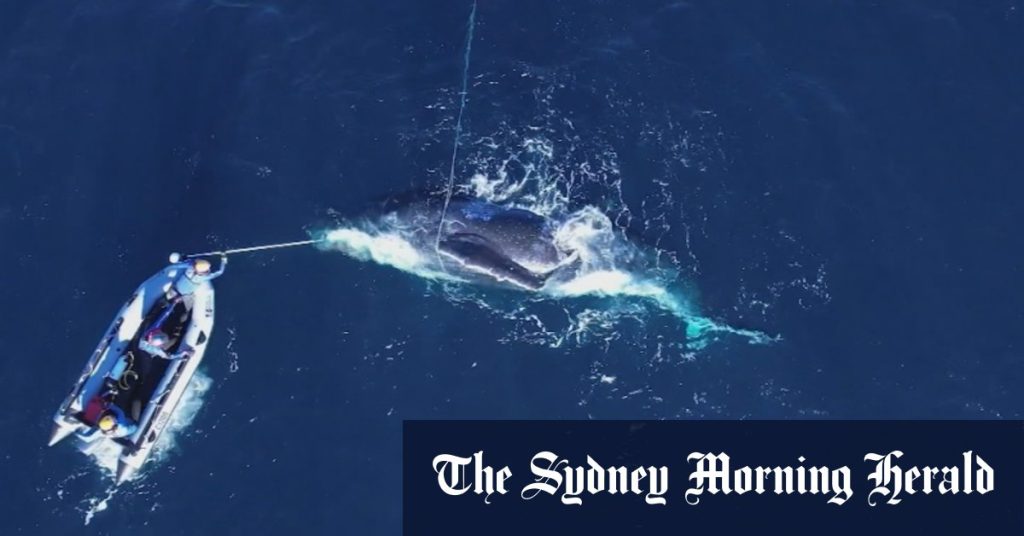A rescue mission unfolded near Rottnest Island involving a 12-meter humpback whale that was tangled in fishing line. The distressing situation required immediate attention to free the whale from the entanglement, which posed a serious threat to its well-being. The incident drew attention to the ongoing issue of marine animals becoming entangled in fishing gear and the necessity of swift action to prevent further harm to these creatures. The rescue efforts were underway to save the whale and ensure its safety in the open waters.
The entanglement of the humpback whale near Rottnest Island highlighted the dangers that marine animals face due to human activities such as fishing. The incident served as a reminder of the impact of human behavior on the marine ecosystem and the need for conservation efforts to protect these endangered species. The rescue mission was a collaborative effort involving experts and volunteers working to free the whale from the fishing line and provide it with the necessary assistance to recover from the ordeal. The incident shed light on the importance of raising awareness about marine conservation and the threats that marine animals face in their natural habitat.
The rescue mission near Rottnest Island showcased the dedication and commitment of individuals involved in marine conservation efforts to protect and preserve marine life. The coordinated response to the entanglement of the humpback whale demonstrated the importance of acting swiftly to address such emergencies and ensure the well-being of the affected animals. The incident also emphasized the need for continued monitoring and intervention to prevent similar incidents from occurring in the future and to safeguard the marine environment from harmful human activities. The successful rescue of the whale was a testament to the collective efforts of those involved in the operation.
The entanglement of the humpback whale near Rottnest Island served as a wake-up call regarding the impact of marine pollution and human activities on marine life. The incident underscored the urgent need for raising awareness about the threats faced by marine animals and the importance of taking proactive measures to mitigate these risks. The rescue mission near Rottnest Island was a tangible example of the challenges faced by marine animals in their natural habitat and the crucial role that human intervention plays in safeguarding their well-being. The incident prompted reflection on the need for sustainable practices and conservation efforts to protect marine ecosystems.
The successful rescue of the humpback whale near Rottnest Island underscored the value of collaborative efforts in safeguarding marine life and addressing emergencies that threaten the well-being of marine animals. The incident highlighted the importance of mobilizing resources and expertise to respond effectively to such situations and ensure a positive outcome for the affected animals. The rescue mission near Rottnest Island was a testament to the dedication and determination of individuals committed to marine conservation and the preservation of marine ecosystems. The incident served as a reminder of the fragile balance between human activities and the natural world and the responsibility we have to protect and preserve the environment.
In conclusion, the rescue mission near Rottnest Island involving a humpback whale entangled in fishing gear underscored the ongoing challenges faced by marine animals due to human activities and the crucial role of conservation efforts in protecting these creatures. The incident highlighted the need for raising awareness about marine conservation and the threats faced by marine life in their natural habitat. The successful rescue of the humpback whale was a testament to the coordinated efforts of individuals dedicated to safeguarding marine ecosystems and responding to emergencies that put marine animals at risk. The incident served as a rallying cry for sustainable practices and proactive measures to ensure the well-being of marine life in the face of mounting environmental challenges.


